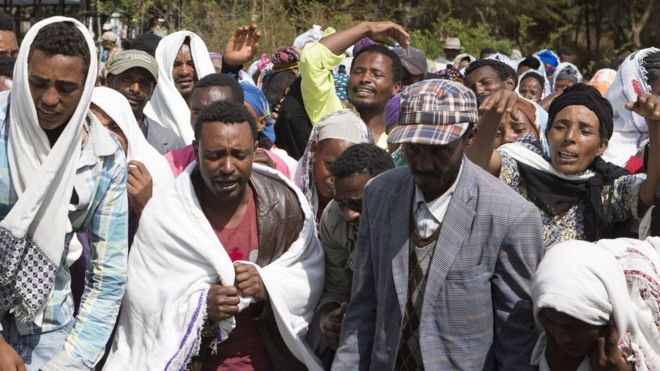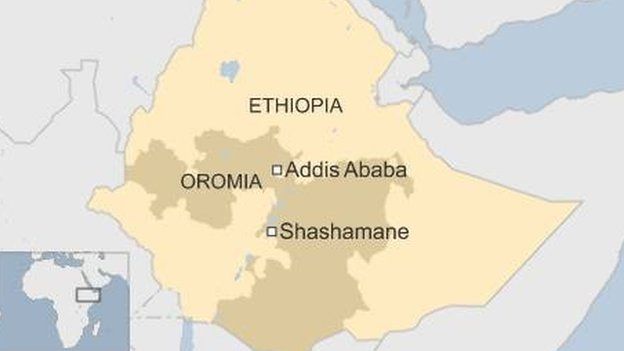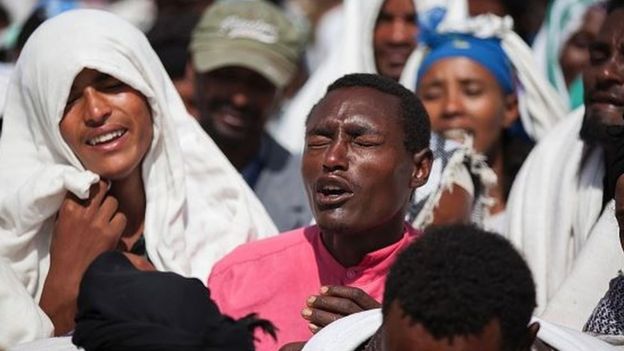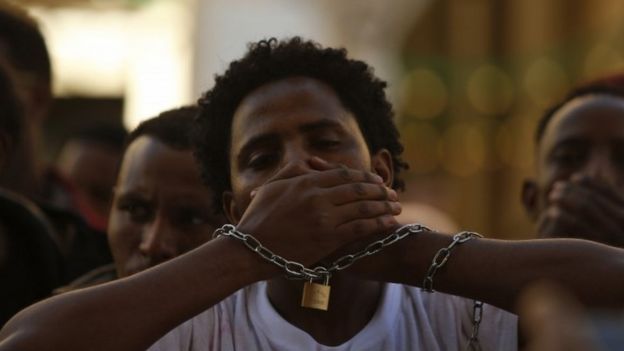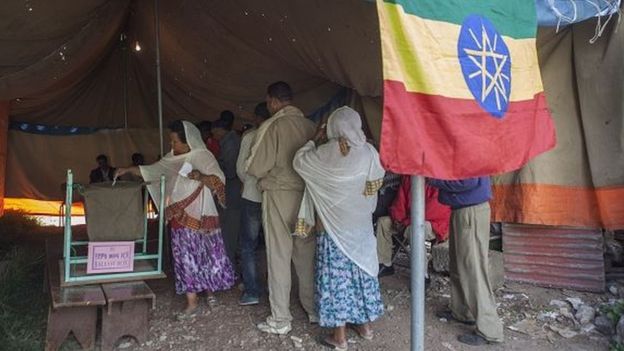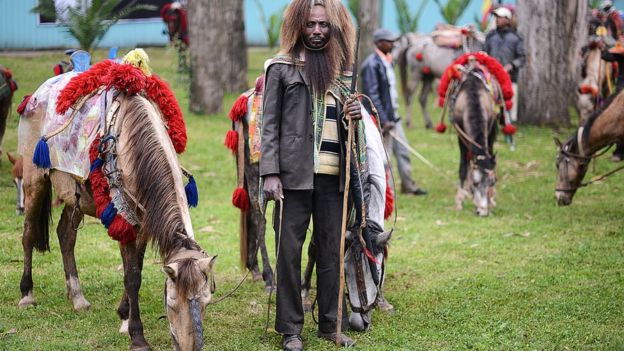(Ayyaantuu) #OromoProtests there has been no electricity in all of Jimma province for the last 4 days.
============
Guyyaa afran dabraniif Jimma keessa elektrikin hin jiru
============
Guyyaa afran dabraniif Jimma keessa elektrikin hin jiru
#OromoProtests-(09.03.2016, #EndSlavery, Oromia)”As protests in Ethiopia over the rights of the country’s Oromo people continue, Addis Ababa-based journalist James Jeffrey considers if they are threatening the country’s unity.
The latest round of bloody protests over Oromo rights had a tragically surreal beginning.
A bus filled with a wedding party taking the bride to the groom’s home was stopped at a routine checkpoint on 12 February near the southern Ethiopian town of Shashamane.
A bus filled with a wedding party taking the bride to the groom’s home was stopped at a routine checkpoint on 12 February near the southern Ethiopian town of Shashamane.
Local police told revellers to turn off the nationalistic Oromo music playing. They refused and the bus drove off.
The situation then rapidly escalated and reports indicate at least one person died and three others were injured after police fired shots.
The exact details of the incident are hard to verify, but what is clear is that days of protest followed, including armed local militia clashing with federal police, leaving seven policemen dead, the government says.”
Bitootessa 9/2016 Godina Horroo Guduruu wallaggaatti Warraaqsii biyyoolessaa Oromiyaa #FXG’n daran jabaachuun itti fufee jira.guyyaa har’aa aanota akka #Jaartee,Magaalaa #Aliiboo #Jimmaa Gannatii #Suluula Finca’aa keessatti warraaqsii haalaan Jabaachuun itti fufee, #Sululaa Finca’aa keessatti Waraanni wayyaanee dhukaasaa wal irraa hin citne banuun uummata goolaa jira, Goototni barattootni Oromoo dhaadannoo jabaa, mirgi abbaa Biyyummaa Uummata oromoo kabajamuu qaba!!
Nuti Bulchiinsa Ergamtuu Diinaa wayyaane OPDO hin fudhannu
Waraanni Mooraa barnootaa fi biyya keenya gadhiisuu qaba!!
Nuti Bilisummaa fi dimookiraasii dhabne jechuun warraaqsaa finiinsuun Barnoota dhaabuun Barnootni Bilisummaa Boodaa waraanaaf barachuus hin dabdeenyuu, Mooraan barnoota bakka itti ajjeefamnu ta’ee jira jechuun gara Maatiitti deebi’an.
-Yeroo amma kanba daandiin konkolaataaf bakkoota hedduutti cufamee jira

Guyyaa har,aa bitootessa 09,2016 ganama kana humni kora bitinneessaa jedhamu guutummaan guutuutti Yuunversiitii Wallaggaa fi naannoo ishee weeraree jira.
Humni kora bitinneessaa jedhamu kunis halkan edaa sababii ijoolleen doormii gadi lakkisanii gara magaalaatti imaluu jalqaban baratoonni heedduun immoo mooraamatti hafuun fincila daran finiinsuun mootummaa gabroonfataa wayyaanee boqonnaa dhorkaa bulanii jiru.Baratoonni mooriicha keessa jiranis kalleessa ganama irraa ka’uunishanga har,aa kanatti hunduu nyaata lagachuun diddaa isaanii agarsiisaa jiru. Yeroo ammaa kanas sababii isin humna degersaa yookiinimmoo ABO tu naannoo kana jira jechuurraan kan ka,e humni kora bittinneessaa akkasumas makalaakiyyaa warri jedhamanis heedduminaan mooraa yuunversiitichaa keessaa fi ala isaa guutummaan guutuutti dhuunfatanii jiru.Haaluma kanaan baratootaanis guyyaa har,aa kana ganama irraa ka,uun olseenuu malee gadi ba,uun hin danda,amu jechuun baratoota nagaa dhorkaa jiraachuun maddeen keenya ifa godhu.gabaasa qeerroo
